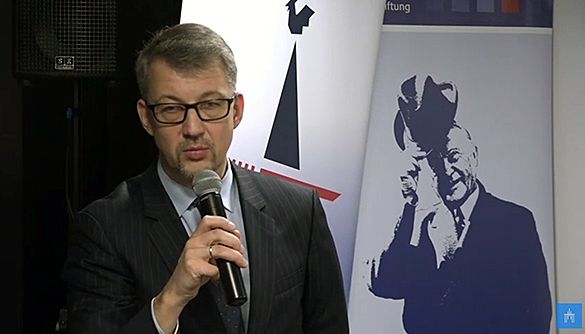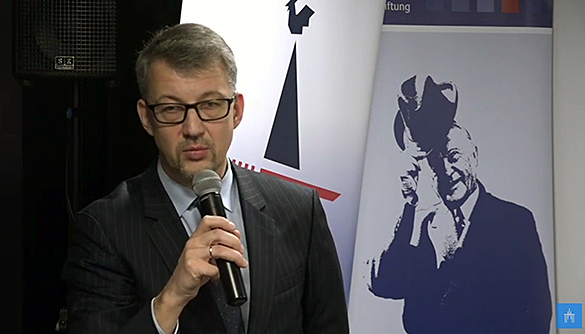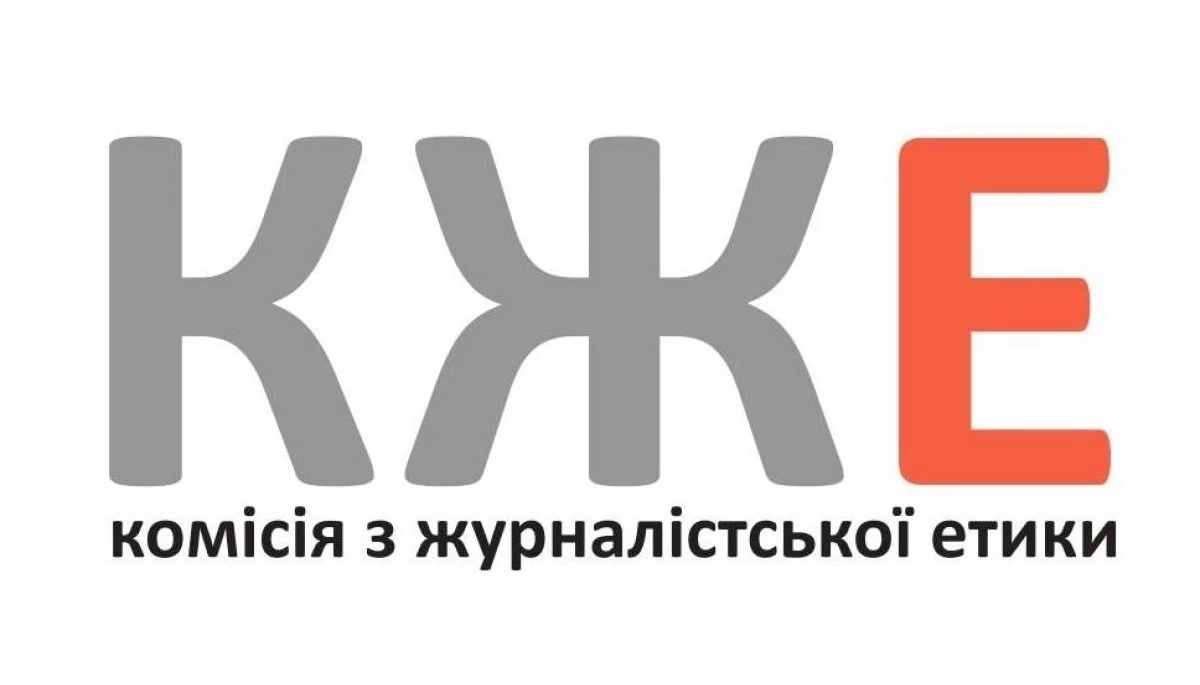
Kaspars Ozoliņš, State Chancellery of Latvia: Media could be used and manipulated during elections
Kaspars Ozoliņš, State Chancellery of Latvia: Media could be used and manipulated during elections


На русском читайте здесь.
In October 2018, Latvia held its 13th parliamentary election. The results indicated significant changes in the Latvian political landscape. In the 2018 election, the parties in the governing coalition (“Nacionālā apvienība” (National Alliance), “Zaļo un Zemnieku savienība” (the Union of Greens and Farmers), “Jaunā Vienotība” (New Unity)) lost more than half of the voters who had supported them in 2014. The three parties who gained second, third and fourth places in the new parliament had not previously been represented: KPV.LV (“Who owns the state?” party), “Jaunā Konservatīvā partijai” (the New Conservative party) and “Attīstībai/Par!” (Development/For!). Immediately after the election, the Providus Center for Public Policy and the Baltic Centre for Media Excellence commissioned the research centre SKDS to perform a public opinion poll. The aim of the poll was to determine the factors which could have affected voters’ decisions in the election. The results of the poll were presented during the international conference “Protecting the integrity of elections. Experience of Latvia, USA, UK, Germany, Sweden and Ireland” that was held on December 14 in Riga.
This post-election survey showed that 57% of voters found the voting decision easy; 41% − difficult. The response to this question notably differed between ethnic Latvians and other groups. Where 47% of ethnic Latvians considered the choice in the 2018 election to be difficult, it was only 25% for people of other ethnicities.
Around 35% of Latvian citizens made their final voting decision for the 2018 election within a week of the vote, or even in the polling station itself. This parameter also showed notable ethnic variations: citizens who speak Russian in their family decided who to vote for on average earlier than those whose family language is Latvian. Only 33% of voters indicated that they had already made up their mind in the first days of September or even earlier. For approximately a third of those who did not vote in the 2018 election, the decision not to participate was also made within the final week prior to the election.
To determine the reasons which have prompted so many Latvian voters to change their voting preferences, the post-election survey included several statements with particularly high potential for voter mobilization or populism – analogues of these statements were often invoked during the course of the 2018 election campaign. 68% of Latvian citizens were prepared to agree with the statement that any changes are better than no changes. Perhaps exactly this indicator best explains the major shifts in the political landscape in October election. 69% of Latvian citizens agreed with the statement that the ruling powers in Latvia are corrupt.
The post-election survey confirmed that, in October 2018 election, television was still the most important form of media for voters – 76% of voters received political information prior to the election from one or more television channels. However, the influence of television has decreased – younger citizens watch television rarely.
Internet news portals are becoming even more popular in Latvia – political information was consumed by 66% of voters on such portals during the election campaign period. Political information on the radio was listened to by around 52% of citizens prior to the election. Political information on the radio was heard comparatively more often in the countryside. Newspapers and magazines are a traditional form of media from which less than a third of Latvian citizens gain political information. It is important to note that a particularly small number of readers of the printed press are in the age group 18-24; less than 10% of citizens in this age group indicated that they read political information in the printed press prior to the election.
Approximately 55% of Latvian citizens noticed political advertisements on at least one of these social networks. Most often: Facebook (50%), YouTube (13%), Draugiem.lv (8%), Twitter (6%), Instagram (5%), Odnoklassniki (2%), and VKontakte (1%).
Approximately 8% of Latvian citizens do not use the media at all – neither television, radio, internet news portals nor print media. They are mainly young people – other demographic indicators differ only minimally from those of Latvian citizens in general. This group of voters exhibits the following features when compared with other voters:
- Twice as often did not vote;
- Twice as often noticed a candidate’s attempts to persuade voters on social media;
- Noticeably more often considered that Latvia’s future is under threat;
- Noticeably more often felt offended by the Latvian state;
- Noticeably more often considered that “new rogues are better than old ones” (one more message that was checked by researchers).
Only 18% of Latvian citizens considered that there was a lot of misinformation about candidates during the election campaign period which they did not believe, despite frequent fears before campaigning got underway that it would be a very dirty campaign.
The Detector Media met with deputy director of the State Chancellery of Latvia Kaspars Ozoliņš, who was one of the speakers at the conference, and ask him to comment on the results of election and findings of the opinion poll. During the election he headed the Task Force on Protecting the Integrity of Elections in Latvia. Before joining the State Chancellery, Kaspars Ozoliņš has been working in the Latvian diplomatic service for over twenty years and has represented Latvia in Sweden, the Czech Republic, Croatia, the United States, and Denmark.
– Mr. Ozoliņš, on December 31, presidential campaign started in Ukraine. And we feel like in face of tsunami because of disinformation threats. Despite banning 81 Russian TV channels, we have anxious processes – e. g. pro-Russian politicians bought TV channels just before the elections. How do we try to counter external interference in the elections or to ensure integrity of elections? We also have launched the task force. But the difference is that it does not include representatives of the authority bodies (media regulator, the Central Election Commission, law enforcement agencies). Our task force was launched by the think tank from the West and supported by one of Ukrainian oligarchs and representatives of our civil society. That’s why I would like to ask you about your experience: how did this task force work in your country? Your experience is interesting even more because you said that Latvian parliamentary election went smoothly.
– I do not know what your experience was with the external election influence over the last 20 years. But there has always been an interest from the Russian side in the election results in Latvia. Some things that you are noticing in Ukraine nowadays we had in the past in Latvia as well. And I should say that if somebody wants to interfere into elections in Latvia, they will have quite good background knowledge of what is possible, what is not possible, how people react on one or the other type of interference. So in that sense, I think probably it was decided not to interfere into elections this time to the extent like it was in the past, because we have seen that in the past that external interference was very often backfiring as well. And in the meantime, our society has built a certain level of resilience against the external interference. We were able to prepare for some things. But, of course, there were some risks and if they materialized, we would not be able to prevent them or to react properly. And the only thing we could do at that point would be to communicate.
What is important for communication? It is needed to have as short as possible time between any kind of incident and communication. Because when people and media don't have information, they start to spread different kind of theories. And it feeds the cycle of disinformation and mistrust. Therefore, our task was to put together all the security institutions and law enforcement agencies in one information exchange decision-making and communication mechanism.
We had two constituencies for communication. One was mass media that need to know if something has occurred in the real life; they need to know what the facts are and who is doing something to follow the case. The other type of constituency for communication was the political masters because in case of incident they also need to be sure that the proper institutions are having this information and there will be a follow-up.
You can work with the media in two ways. When you see that something is happening, but it's not surfaced on the media yet, you can let them know in advance that this is coming up and ask, “If you can, please, don't rush to inform about it. And if you have extra new information, please, come back to us and verify instead of going out to public and trying to stir additional emotions that will interfere the elections.” Or if it is already on the media, we will confirm or say what we see.
Communication with the political masters is the same. They need to know that something is happening and somebody is looking after it. And if it's already public, when the media call them, they need to be able to say with certainty, "Yes, I know it. Security service or police is working on that and you will get information from them." It’s opposed to the scenario when they would start to speculate what it is, then try to learn more from the media and give out their versions of the events, pointing fingers to other people who need to be responsible – and then elections are overtaken by the comments of the politicians of what possibly has happened or has not happened. This is kind of influence that needs to be avoided. The other thing with the politicians is to warn them.
What kind of incidents we were looking at? Of course, we were looking for information if something was bubbling, growing on the social media or was going on Russian TV channels, if there was a cyber attack or an incident at the polling station, including stations from abroad. We had polling stations in 45 countries and we had that information.
But mostly we were doing preventive work. We established good working contacts with offices of the social media. Their administrators could help us on 24/7 basis if there was a need. We could report an incident and ask them to assess if it is something beyond their policies. We tested on some occasions these relationships with the media: we informed of what type of malign activity is going on or might enter Latvian information space and the journalists also were telling us what it was. And, of course, we talked with the opinion leaders explaining what the task force does and what we are not covering.
We also provided media with the information about different scenarios that could happen in the pre-election period, during the political debate, on the Election Day, and after it. And we ran those scenarios with the media not only in Riga but also in the regions. I was trying to tell them that they themselves could become targets of the influence. They could be used and manipulated. That was something new for them. Moreover, the part of the training we did together with all the institutions that were involved in support of the running elections: the Central Election Committee, the Corruption Fighting Bureau, the Security Police, the State Police, and the State Chancellery.
We met face to face with the media editors and journalists and explain them: this is how we would act and this is what we would expect you to do. We gave my mobile phone to every journalist so they had a confidence that when they needed something they would be able to reach me and I would be able to comment. And, of course, we had off-the-record briefings with the media about what we saw, how we were preparing. I think this built trustful relationship with the media. That was one event which was on Russian “Sputnik” and “Rossiya 24”: I mean expelling the journalist who knew that he was on the blacklist from 2014, but he still came. That event didn't spill over into our information space that I also attribute to our relationship with the media and their awareness that there might be some kind of provocations.
We also worked with Google on the securing smartphones, computers, and laptops. We invited them to come over and had them to work together with those political parties and media who wanted to strengthen security on their devices.
And, of course, we worked with the social media platforms on strengthening the profiles of the state institutions. As a result, the social media knew in advance which accounts were legitimate, which accounts they shouldn't check.
But it was not only us. There were a couple of state-run programs for the media support, for the support of media literacy, investigative journalism. And there were tools developed for understanding the processes. The Corruption Fighting Bureau developed the application for the smartphones where people could send photos or just information about the violation of political advertising. I don't remember how many people reported, but they did it. In other words, we tried to develop whole society approach.
One more thing that I could mention is that we had the monitoring of the TV, social networks, internet, and radio. And it was not done just by us. We externalized it as a second pair of eyes to be sure that we always can check with somebody if the spread of information is organic or inorganic.
What is also interesting: on one of the FM radio stations on top of every hour we had news, and after the news we had one piece of fake news, and then there were explaining what was wrong with this information and how and where the audience could check it. So I believe that the society was more or less informed about potential external influence.
For voters it doesn't really matter where the information comes from. They just have to make decisions based on information. But for me it was a qualifier. I was looking only for the external influence. I was not interfering in the domestic debate, how dirty they were or whatever.
– How many people did your task force include?
– That was tiny task force: you can understand it from the scale of Latvia. There were no new people hired from somewhere. There were people from the institutions or mandated. We met regularly but not every day and tried to solve issues. There was a core group and we could always invite somebody else.
– And you got this result of election: you have three new parties in the parliament and 67 new MPs out of 100. And there was an opinion poll with the results of about 69% of people who say that everyone's corrupt and any changes are better than no changes. Why did you get this result? Is it because of the current economic situation? Or is disinformation the cause?
– These are two things that may correlate: there is, of course, certain amount of organic discontent, but some of it may come of the long lasting informational influence on campaign. All those things like political leaders are incapable and corrupt, and economy is falling, and people are leaving the country, and the EU is tired of paying for Latvia, and NATO is just using Latvia as a base – if you are living in that information bubble, it will create your attitude. But on the other hand, I don't know if the same polling was done in the past. It shows that people are skeptical of the political environment. This is a part of the society resilience. We are aware about divides within the society and this is what we have to work on.
– What would you like to fix before the next elections?
– I think it's not only about the elections. The main task is that the government is able to make political decisions and explain them to the people, and people should be able to receive and understand the decisions. It's a constant process of building a cohesiveness of the society. It's not just about elections, and elections are just a moment, one event.
It’s important to try to understand that there is more and more influence of the new technological devices, social media, and cyber attacks. This is something that is not easy to see and to identify who is behind it. And it is important just to know: when we make a political decision about the future for our country and when people entrust their votes, this process should be cleaned out of external interference and this is not clear anymore in this new environment. How it is going to change we do not know. This is a constant long-term process that we have to continue after the election.
It's the same thing as how we deal with the populism. We need to answer that before the next elections. The social media is provoking and exploiting emotions that force people to make emotional decisions as opposed to rational ones. And this is what we try to explain people: just make judgment of yourself. If you are under emotions, please, refrain from making decision, take a step back and think it over again.
Photo: screenshot












